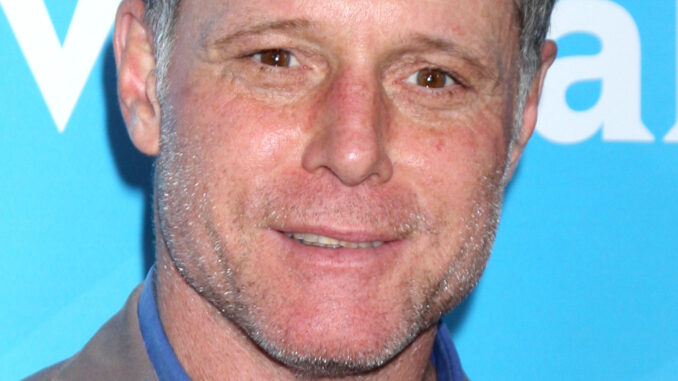
The Unmistakable Growl and the Gallery of Ghosts: Jason Beghe’s Amazing TV & Film Roles Before Hank Voight
For a generation of television viewers, the name Jason Beghe is inextricably linked with the gravel-voiced, morally ambiguous, yet fiercely protective Sergeant Hank Voight of the Chicago P.D. universe. Voight is an indelible character, a force of nature whose gruff exterior and often questionable methods have become a cornerstone of primetime drama. Yet, to define Beghe solely by this iconic role would be to overlook a rich, varied, and often surprising career that spans decades, showcasing a profound talent for embodying complex, flawed, and utterly human characters long before he ever donned a badge in the Windy City. Before Voight became a household name, Jason Beghe was building a remarkable gallery of ghosts, tough guys, and nuanced individuals, each performance laying a brick in the foundation of the powerhouse actor he is today.
Beghe’s early career immediately signaled an actor unwilling to be easily categorized. His true breakout came in George A. Romero’s unsettling 1988 horror film, “Monkey Shines.” Here, Beghe delivered a performance that was as physically demanding as it was emotionally raw. He played Allan Mann, a quadriplegic man who forms a terrifying bond with his helper monkey, Ella. Beghe conveyed the suffocating frustration and helplessness of his character, making Allan’s descent into paranoia and rage heartbreakingly believable. It was a role that required immense vulnerability, physical restraint, and an ability to project intense psychological torment, far removed from the stoic authority figures that would later define much of his work. “Monkey Shines” demonstrated his capacity for carrying a film and delving into the darkest corners of the human psyche, marking him as a talent to watch.
Following this, Beghe began to cultivate a reputation for intense, physical roles that often bordered on the enigmatic. In the seminal 1991 film “Thelma & Louise,” while a smaller part, his portrayal of the young state trooper, played with a blend of earnestness and subtle menace, left an impression. He projected a clean-cut exterior that hinted at a darker undertone, a skill he would later perfect. But it was his work as Lieutenant Commander Royce in Ridley Scott’s 1997 military drama “G.I. Jane” that truly solidified his image as a formidable, no-nonsense presence. As the tough-as-nails training officer responsible for Demi Moore’s character, Jordan O’Neil, Beghe delivered one of his most iconic pre-Voight performances. His gruff exterior, piercing gaze, and booming voice were perfectly suited for the role, culminating in the unforgettable scene where he shaves O’Neil’s head with brutal efficiency. Here, his intensity wasn’t just an act; it was a force of nature that commanded the screen, foreshadowing the intimidating presence he would later become.
Beyond the big screen, Beghe proved his versatility across the television landscape. He wasn’t afraid to step into dramatically different roles, showcasing a comedic timing and emotional range that might surprise those only familiar with Voight’s grim demeanor. He made a memorable turn as the charming, if somewhat problematic, lawyer Jeffrey Breaux in the early seasons of “Melrose Place,” demonstrating an ability to navigate the high drama and soapy machinations of a primetime serial. Later, he brought a different kind of intensity to the sitcom “Dharma & Greg,” playing a recurring love interest with a quirky charm that proved he could disarm with a smile as easily as he could intimidate with a glare.
As the 2000s progressed, Beghe began to refine the archetype of the complex, often morally grey figure that would eventually lead him to Voight. He made compelling guest appearances on countless procedural dramas like CSI, Criminal Minds, and NCIS, often playing military personnel, detectives, or conflicted authority figures. These roles allowed him to hone his distinctive vocal delivery – that signature rasp – and his ability to convey a world of backstory and internal conflict with just a look.
Perhaps one of his most fascinating and underappreciated pre-Voight roles came in the Showtime series “Californication.” As Richard Bates, the eccentric, recovering addict, and former rock star, Beghe delivered a performance that was both hilarious and heartbreaking. He was loud, chaotic, deeply flawed, yet ultimately endearing. It was a complete departure from the typical tough-guy persona, revealing a profound capacity for vulnerability, self-deprecation, and a nuanced understanding of addiction and redemption. This role was a masterclass in controlled chaos, proving Beghe’s range extended far beyond mere intensity.
And then, there was the role that felt like a direct precursor to Voight: the corrupt but ultimately well-intentioned Captain John McGinty on “Castle.” Beghe’s McGinty was a damaged man haunted by past mistakes, trying to do right in a world that often demanded moral compromise. He navigated the murky waters of police work with a weary cynicism, embodying the kind of “ends justify the means” mentality that would later become Voight’s modus operandi. It was a performance that brought together the gravelly voice, the intense gaze, and the profound sense of justice that operates outside conventional lines, creating a character that was eerily similar in spirit to the one that would soon define his career.
In retrospect, Jason Beghe’s journey to Hank Voight was not a sudden emergence but a carefully constructed evolution. Each role, from the traumatized quadriplegic of “Monkey Shines” to the intimidating drill sergeant in “G.I. Jane,” the quirky addict in “Californication,” and the compromised captain in “Castle,” built upon the last. He explored the full spectrum of human emotion, perfecting the art of portraying flawed men grappling with difficult circumstances. His pre-Voight filmography isn’t just a collection of forgotten roles; it’s a testament to a multifaceted actor whose distinctive presence and undeniable talent were evident long before he patrolled the streets of Chicago, forging a rich legacy that stands on its own impressive merits.
